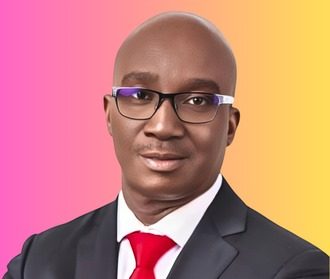Governor Godwin Obaseki’s declaration of a divine mandate to combat cultism in Edo State has ignited a fervent discussion about the intersection of faith, governance, and social responsibility. Speaking at a thanksgiving mass commemorating the second anniversary of Speaker Blessing Agbebaku’s tenure and Father’s Day, Obaseki asserted that his role in tackling this pervasive issue was not predicated on physical prowess but rather on divine appointment. This assertion has resonated with some who view his commitment through a spiritual lens, while others question the implications of attributing political actions to divine intervention. His pronouncement underscores the complex interplay between religious belief and public service, particularly in a society grappling with multifaceted social challenges.
Obaseki’s declaration raises crucial questions about the nature of leadership and the source of its legitimacy. Does invoking divine authority enhance a leader’s moral standing and effectiveness, or does it risk blurring the lines between religious conviction and public policy? In a pluralistic society like Nigeria, where religious diversity is a defining characteristic, the use of religious rhetoric in political discourse can be both unifying and divisive. While it may resonate with certain segments of the population, it can also alienate others who hold different beliefs or adhere to secular principles. The governor’s statement, therefore, necessitates a nuanced examination of how religious convictions inform governance and influence public perception.
The context of Obaseki’s declaration, a thanksgiving mass marking the Speaker’s anniversary and Father’s Day, further adds layers of complexity to the interpretation of his message. The convergence of these occasions suggests an attempt to intertwine spiritual reflection with political pronouncements, potentially creating a symbiotic relationship between religious observance and public leadership. The presence of prominent figures like the Deputy Speaker and Majority Leader reinforces the symbolic significance of the event, demonstrating a public display of unity and shared purpose. However, it also raises questions about the potential for religious events to be instrumentalized for political messaging.
The Governor’s comment linking fatherhood to leadership provides another lens through which to analyze his pronouncements. By drawing parallels between the dedication required in both roles, he seeks to establish a connection between familial responsibility and public service. This analogy suggests a paternalistic approach to governance, where the leader assumes a role akin to a caring father figure, guiding and protecting the citizens. While this analogy may resonate with some, it also raises concerns about potential limitations. Can a paternalistic model adequately address the complexities of governing a diverse population with varying needs and aspirations? Furthermore, does it inadvertently reinforce traditional gender roles and expectations?
Speaker Agbebaku’s reaffirmation of the legislature’s commitment to collaboration with the executive branch highlights the importance of intergovernmental cooperation in addressing the challenges facing Edo State. By emphasizing the need for synergy, Agbebaku underscores the importance of a united front in tackling issues like cultism. This commitment to collaborative governance suggests a recognition that effective solutions require a coordinated effort across different branches of government. However, it also raises questions about the potential for political maneuvering and the negotiation of power dynamics between the executive and legislative branches.
The presentation of awards to Governor Obaseki, Speaker Agbebaku, the Deputy Speaker, and the Majority Leader during the service underscores the symbolic nature of the event and the importance of recognizing leadership within the context of religious observance. The conferment of these honors serves to reinforce the intertwined relationship between political leadership and religious institutions. While such gestures can be interpreted as a celebration of public service, they also raise questions about the potential for blurring the lines between religious recognition and political endorsement. In a secular democracy, it is essential to maintain a delicate balance between acknowledging the role of faith in public life and safeguarding the principles of secular governance. The convergence of religious ceremony and political recognition at this event necessitates careful consideration of the implications for both the political and religious spheres.


